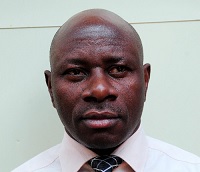
Let Council support, not undermine, medical schools by not declaring their graduates `half-baked’
COMMENT | PETER NYANZI | Officials of the Uganda Medical and Dental Practitioners Council are bitter over a recent High Court ruling that ordered them to recognise medical graduates of King Caesar University and deploy them for internship training immediately.
The Uganda Medical and Dental Practitioners Council said they intend to file an appeal against the decision, saying it undermines their mandate to protect the public from “half-baked doctors.”
However, I think the Medical Council should simply take the court decision under the chin and aim at being more supportive and proactive in regard to how medical professionals are trained in the country.
Firstly, King Caesar University (formerly St. Augustine International University) was formally accredited by the National Council for Higher Education (NCHE) to offer the Bachelor of Medicine and Surgery way back in May 2015.
For five long years, the students were undergoing medical training until they graduated.
The Court agreed with the aggrieved students that the Medical Council’s actions in refusing to recognise them would amount to usurping the powers of the NCHE, the body mandated by law to accredit universities to train medical professionals.
Of course it was not fair for the Council to wait for the students to spend millions of shillings per semester for five full years then on completion declare them “half-baked.”
How would the Council members feel if they or their children were the ones in the shoes of these students?
That is one. Secondly, it is a well-known fact that Uganda is in dire need of medical professionals; especially doctors.
What is the Medical Council doing to ensure that the number of doctors increases every year, in proportion to the growing population?
Let me illustrate. Uganda’s doctor-patient ratio currently stands at about 1:25,700, according to the World Health Organisation (WHO). That there’s one doctor to attend to 25,000 citizens is miles away from the WHO-recommended doctor-patient ratio of 1:1,000.
Little wonder that all our doctors are chronically stressed because of the hefty workload and miserable working conditions, and are consequently leaving the country for ‘greener pastures’ in other countries.
In comparison, the USA has one doctor for every 340 persons while the United Kingdom has one doctor to every 310 citizens.
Now, what is the Medical Council doing to address this dire situation?
Each year, less than 1,000 medical doctors graduate from Ugandan universities, in a country whose population is growing at the rate of 3% per year.
As a matter fact, only 12 out of the 70 accredited Universities in Uganda are certified to offer medical training (ironically King Caesar is one of them, according to the Medical Council’s official website).
One has to wonder why it is appearing on the official list if it is training “half-baked” doctors.
But even public universities need support. According to the annual report of the Makerere University School of Medicine, one of the oldest medical schools in Africa, only 202 doctors graduated in 2023, down from 232 in 2021.
Surely, a medical school of Makerere’s stature, and 100-years’ experience, should be graduating at least 1,000 doctors per year.
Now, what is the Council doing in regard to soliciting for support for the country’s oldest medical school to train more doctors per year?
I contend that at least a half of Uganda’s 70 recognised universities – for example Kyambogo, Bugema, Nkumba, Nkozi, Ndejje, Cavendish, etc – should be training medical doctors by now. All they need is support to build capacity because it does not come cheap.
I’ll insist that it is the role of the Medical Council to lobby our ‘Sciences-focused’ government and other stakeholders to support medical education across the country.
The Council should be looking into how private and public universities can be helped to build capacity to graduate at least 5,000 doctors per year within the next ten years.
Rather than appearing to usurp NCHE’s regulatory powers as the judge rightly stated, the Medical Council should instead be seen to be working with the few medical schools we have to enable them satisfy NCHE’s regulatory requirements, instead of undermining them.
Indeed, the Medical Council should be more aggressive and strategic in helping Uganda to harness her impressive comparative advantages for training doctors in the EAC region in particular and Africa in general.
After all, the Council also benefits from a bigger number of professionals given that they earn good money in annual registration fees paid by its members.
****
 The writer is a journalist.
The writer is a journalist.
 The Independent Uganda: You get the Truth we Pay the Price
The Independent Uganda: You get the Truth we Pay the Price



